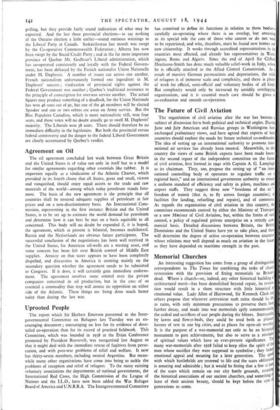The Future of CiVil Aviation
The organisation of civil aviation after the war has become a subject-of discussion fro-n both political and technical angles. During June and July American and Russian groups in Washington have . exchanged preliminary views, and have agreed that experts of both countries should explore the needs for future technical co-ordination. The idea of setting up an international authority to promote inter- national air services has already been mooted. Meanwhile, in this country the views of some British experts have been made knowa in the second report of the independent committee on the future of civil aviation, first formed in 1942 with Captain A. G. Lamplugh as its chairman. They, too, propose the setting up of "an inter- national controlling body of operators to regulate traffic on regional basis," and an international government authority to ensure a uniform standard of efficiency and safety in pilots, machines and airport staffs. They suggest three new " freedoms of the air : freedom of transit (that is, to fly across foreign countries), of facilities (for landing, refuelling and repairs), and of commerce As regards the organisation of civil aviation in this country, the committee recommends control by either the Minister of Transport or a new Minister of Civil Aviation, but, within the limits of such control, a policy of regulated private enterprise on a strictly cola mercial basis. Detailed discussions between Britain, the British Dominions and the United States have yet to take place, and these will determine the degree of active co-operation between countries whose relations may well depend as much on aviation in the fume as they have depended on maritime strength in the past.






















 Previous page
Previous page